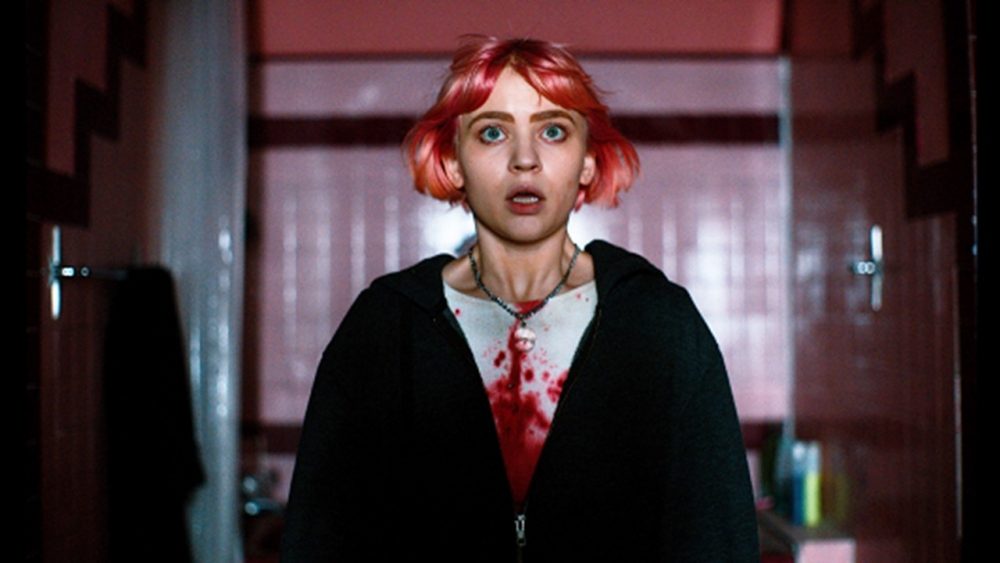Zone 414
by Hope Madden
“Do you know what rich people want? Everything.”
True enough. And in lesser hands, that line might feel trite, but Andrew Baird’s SciFi neo-noir Zone 414 boasts a very solid ensemble. Mostly.
The actor delivering that line, the always formidable Olwen Fouéré (The Survivalist), joins reliable character actors including Jonathan Aris, Ned Dennehy, Jóhannes Haukur Jóhannesson, Antonia Campbell-Hughes and Fionnula Flanagan (The Others) to populate this low-rent Blade Runner.
Which Blade Runner? Either one — although the beauty in a wig with blue bangs suggests Baird leans more recent. She’s Jane (Matilda Anna Ingrid Lutz, Revenge), a sexual synthetic living in the upscale seedy utopia Zone 414, where meat (humans) pay lots of money to spend time doing whatever they want with the likes of Jane.
But that’s not why David Carmichael (Guy Pearce) is in the zone. The super-wealthy mad hatter who designs these high-end toys, Marlon Veidt (Travis Fimmel), hired Carmichael to find his runaway teenager. Veidt’s daughter wishes to be synthetic so she doesn’t have to feel anything.
Yes, all the neo-noir tropes. None missing.
What Bryan Edward Hill’s script lacks in originality, Baird tries to make up for with world-building. It works to a degree and is aided immeasurably by the committed turns from his supporting players. Pearce is as reliable as always, but that doesn’t necessarily mean much. He turns down about as many roles as Bruce Willis or Nicolas Cage. Zone 414 is not one of his best.
It’s not one of his worst, either, but he does have a couple of problems. One is that his big, dramatic scenes tend to pair him not with the exceptional supporting talent, but the weaker leads. Lutz carries off the superficial damsel in distress well enough, but when the film asks her to get a little Ex Machina on us, she flails.
Worse still is Fimmel’s mad genius. That make-up and fat suit don’t help. I’m sure he’s not meant to be comic relief, but it’s hard to see him any other way.
Much of this is redeemed by a few intriguing scenes, but the writing fails Baird a few times too often.
Zone 414 tries really hard. It often fails. But not always.














